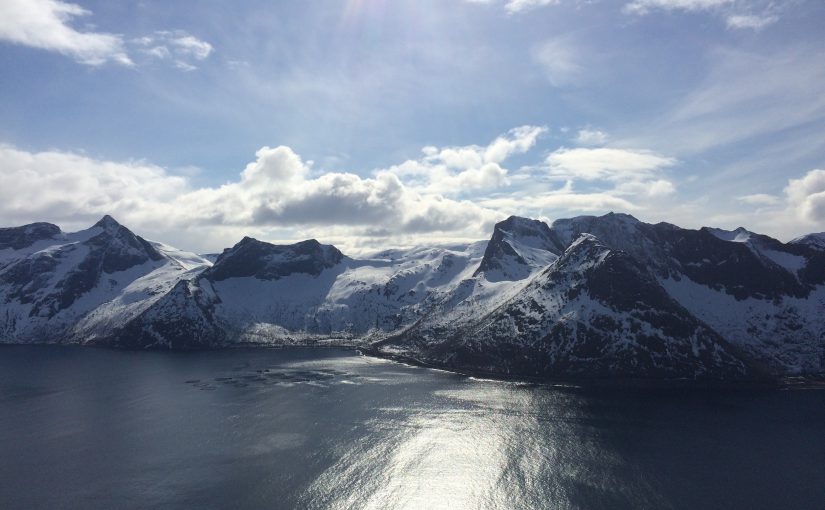Field of study in Wageningen: Environmental Sciences
Study period exchange: 01/02/2023 – 30/06/2023
Country (exchange): Norway
City (exchange): Ås
University (exchange): Norwegian University of Life Sciences (NMBU)
Faculty (exchange): Faculty of Landscape and Society, School of Economics & Business, and Faculty of Environmental Sciences and Natural Resource Management
2. Motivation for exchange
Why did you choose to go on study exchange?
I chose to go on study exchange because I wanted to experience university life somewhere else, a different method of teaching and learning, and a different perspective on environmental sciences. After missing out on a real introduction period during the pandemic, I also wanted to experience a normal university life and make more friends. Furthermore, being stuck inside during the pandemic made me want to travel, explore new surroundings, and gain more cultural awareness.
What is the reason you chose for this country/university?
I chose NMBU for multiple reasons. Firstly, because of the number of courses available that fit my interests and study. Secondly, because of its international reputation and all the good things I’ve heard about it from other people. Thirdly, because it is situated in a rural area, and in Norway, which is a country I have always wanted to visit.
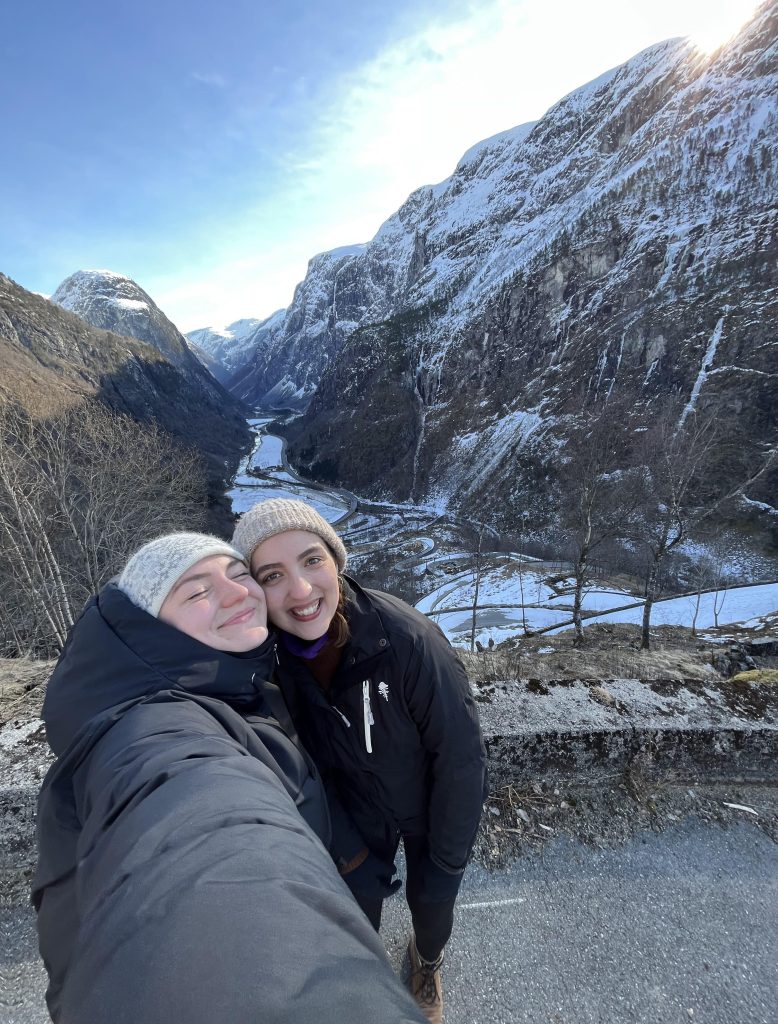
3. Accessibility to reach destination
Do you have any tips to reach your exchange destination?
I personally couldn’t find anything suitable except for taking the plane. Once you reach Oslo, you can easily take the bus or train to NMBU. I know a couple of people that took the car and then the ferry, so I know that is also possible if you have access to a car, which I did not.
4. University and studying
Could you provide some general information about the followed courses?

How is the study formalized?
In the spring, the university operates on two short periods of 4 weeks in January and June, and one long semester in February-May. The short periods are voluntary, in the sense that you can take enough credits during the long semester. The studying goes a lot slower than in Wageningen, as final exams are only in May. The examination was relatively easy if you did all the work during the semester. The workload is overall lower, meaning that you have plenty of free time, and the academic level is also lower than at WUR. You need to be better at organising your own time though, as you can get more easily behind without the frequent exams and deadlines. There are some periods during the semester busier than others, with multiple assignments due within the same 1-2 weeks. Most of the material is either provided by the teacher (online) or in study books that you can buy on campus. Most of the courses have lectures, seminars, and either or both group- and individual projects.
What is the culture of the university?
The culture of NMBU is very relaxed. Teachers are extremely friendly and approachable, and often bring little treats for their students or celebrate small occasions. You frequently find yourself chatting with them during the break. Local students, on the other hand, are a bit more closed, which is according to the Norwegian culture. They are very friendly and helpful though, you just have to be the one to initiate things with them. I’d say it’s quite similar to the culture at WUR: the teachers at NMBU are sightly more interested and friendlier to students.
What does the university offer the student additionally?
The university has a canteen in most of the buildings, a café/restaurant, more than one library, a large gym and a climbing wall, and various organised sports and student activities. There’s many different associations and clubs as well. It also, funnily enough, offers free chlamydia tests to students.
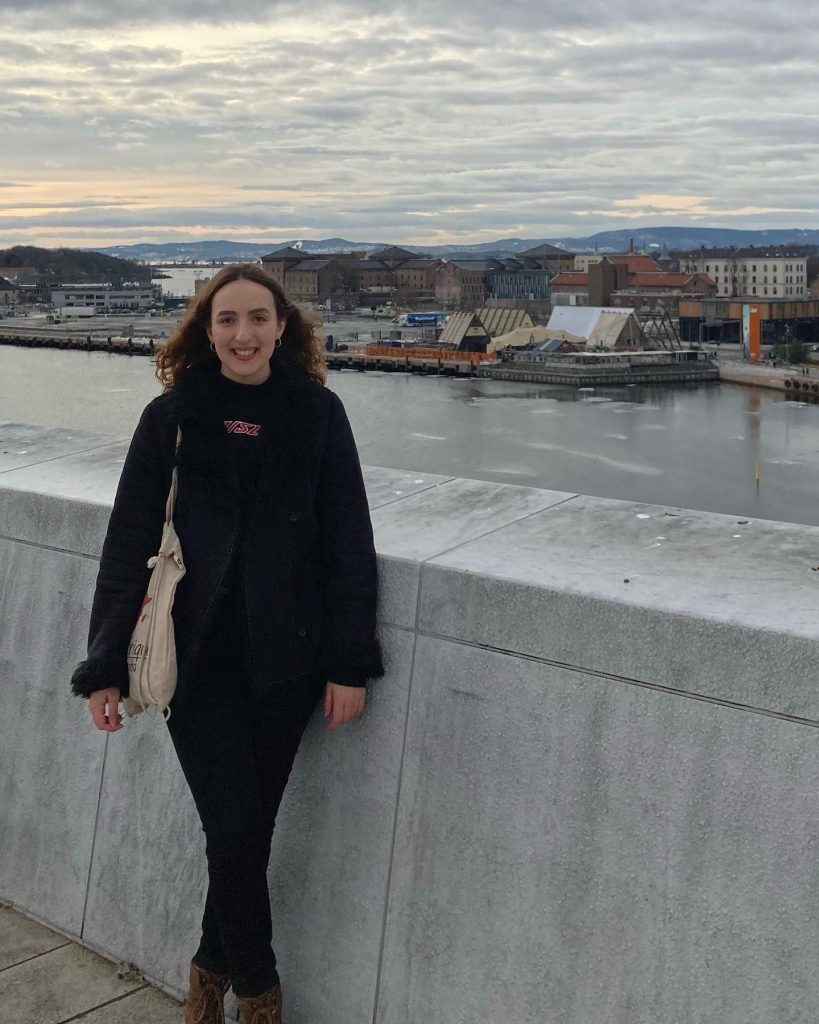
5. Housing-travelling-living
What are the possibilities for housing?
All housing related to the university is under Sias. Sias has many different types of rooms and buildings, but for internationals and exchange students, chances are high that you’ll be stuck with living at Pentagon. There are also a few options for private renting, if you can find one through Facebook or other renting platforms. The rent is quite expensive, but with the higher electricity prices, I’d say they’re still mostly cheaper than in Wageningen.
What is the culture of the country like?
The culture is different from the Netherlands. People are colder and less approachable; you must do most of the work if you want to get to know them. Norwegians are known to be more serious and socially awkward, except for when they are drunk. They also meet less outside of school or organised events, and rarely socialize outside of their associations or already made friend groups. The cuisine is similar, except that they eat more fish. Norwegians also drink a lot less beer than the Dutch, or alcohol for that matter, as it is a lot more expensive. Norway has more holiday days, and they celebrate them a lot. 17th of May, their independence day, was one of my favourite days on my exchange!
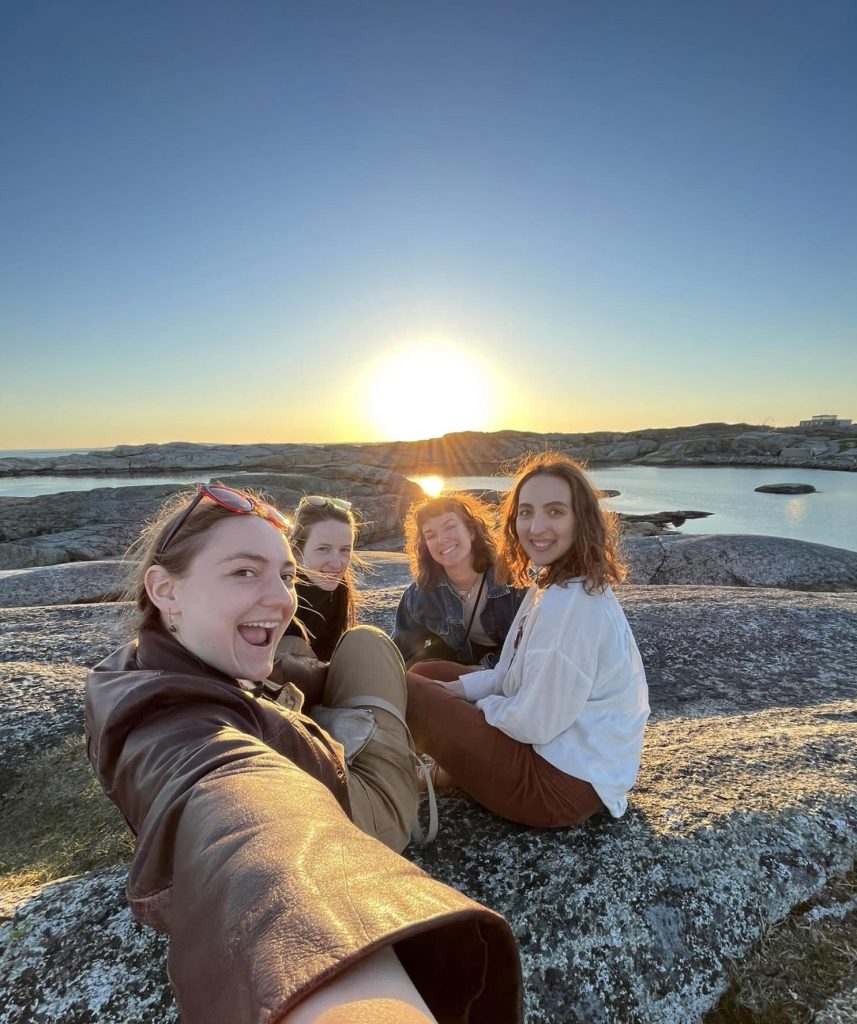
Could you give a general price indication of the place of residence compared to living in Wageningen?
Norway is overall more expensive than Wageningen: groceries, general stores, canteens, activities like the gym, cinema, bowling, etc. On the other hand, the bus and train surrounding Oslo was less expensive than in the Netherlands.
Could you give some information about public transport infrastructure?
The bus and train system around Oslo has its own app: Router. You buy a ticket for the zone(s) you’re traveling through, and over time, you get more discounts when traveling often. Otherwise, for all of Norway, you can use VY, where you also purchase a ticket in the app based on your current location and destination. To go to the university, you can walk, bike, or take the bus, depending on how far you live. To travel to Oslo, I recommend taking the train as it is much quicker. To other places, you can either take the train or bus, depending on what the app recommends you. Don’t take a taxi, it is extremely expensive!
6. Free time
What are must-sees in the area?
Walking around the campus, exploring the forests around NMBU, walking to Arungen lake, hitting the beach and bathing in Drobak, and visiting Oslo: the opera house, library, main street, akershus festning, Akerbrygge and the other harbours, the big ski slope, the sculpture parks, the islands surrounding Oslo, the national museum, the national history museum, the Munch Museum.
You will have lots of free time to travel in February and March, so plan the things that take longer then, school is quieter in those months. I also really recommend going on some of the trips that ESN organises, such as the Lapland trip, fjordtrip, Preikestolen, etc. The Lapland trip was the highlight of my exchange!
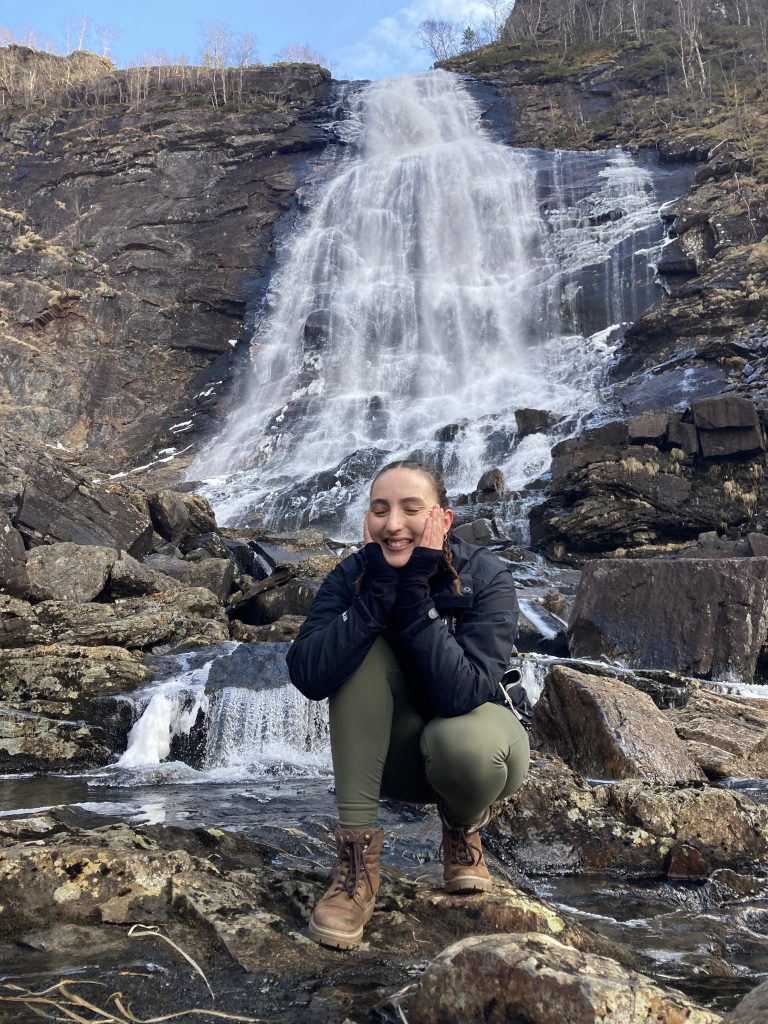
What does not appear in the travel guide, but is worth a visit?
I didn’t have a travel guide so I don’t know.
Do you have general tips and tricks about leisure time?
I recommend signing up to the university gym, it’s the best gym I’ve ever trained in, and a lot of students go there. I can also recommend becoming a member of ESN, they have a lot of fun activities, and all the exchange students meet up there. If you want to join any sport, I recommend either the climbing, frisbee or swing dance association, they are all very active and open to internationals. To go out, go to Oslo. When the weather gets nicer, do a barbeque with friends in front of Pentagon or in Drobak! There are also a few nice cafes in Ås.
7. Challenges & best moment abroad
What was a challenge you have experienced?
My hallway was a real challenge. I lived with only Norwegians, and they didn’t even say hi to me when walking past. The house was very dirty and unwelcoming, and my room was small and the bed uncomfortable. It encouraged me to spend as much time as I could outside of the house and make more friends, so in the end, I survived.
What was your best memory abroad?
All the wonderful trips and evenings I had with my exchange friends. Norway is truly an amazing country, you’ll never forget the places you’ve seen there. The nature is so pristine, the air so fresh, the mountains perfect to hike, and the forests beautiful to walk in. Oslo is also a wonderful city with endless opportunities, I still feel like I didn’t see half of what it had to offer.
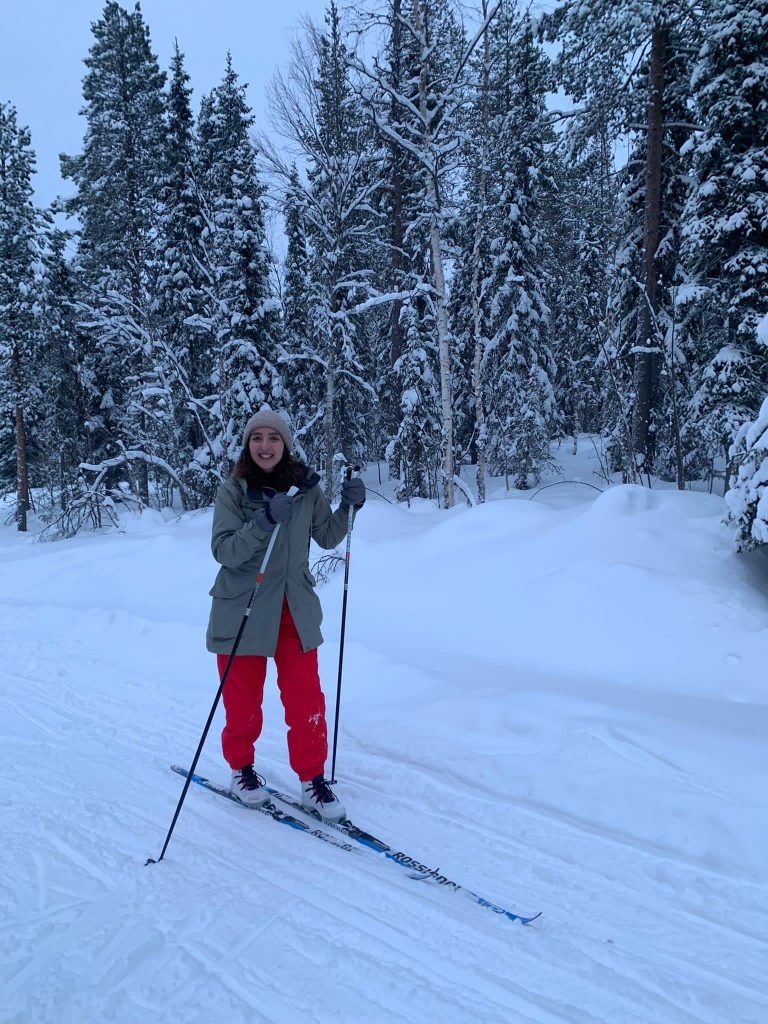
8. Contact details
Would you like to ask Laura more questions about her exchange?
Send her a mail: Laurascheefer@gmail.com

